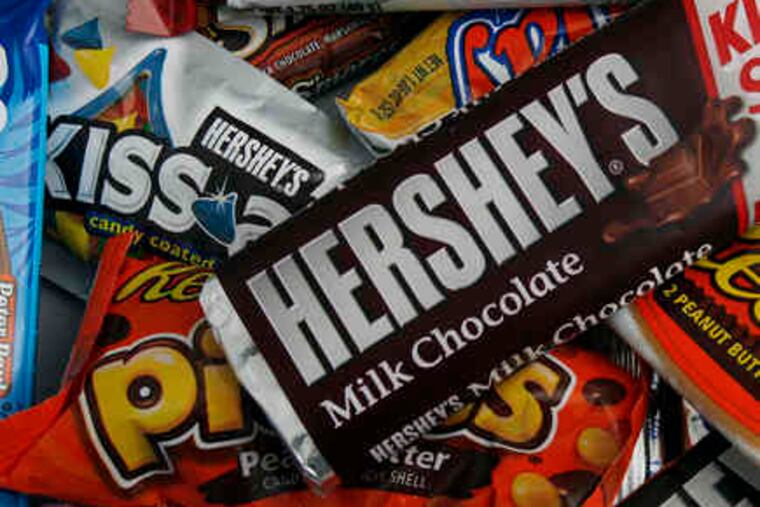Candy shortage for Halloween? Hershey backtracks on confection catastrophe
Despite last week's reports that Hershey might not be able to supply enough candy for Halloween, the chocolate company now says there's no cause for concern.

Hershey Co. reassured chocoholics and other customers Monday that there will be plenty of sweets for Halloween.
Hershey’s reassurance came just days after Reuters and many other news outlets reported that the candy conglomerate would fall short of meeting the demand for trick-or-treating.
Yes, there are supply chain issues in candy land, such as a shortage of ingredients such as cocoa. The COVID-19 pandemic and the war in Ukraine have had an impact on confectioners, including Pennsylvania-based Hershey Co.
Still, Hershey, maker of Almond Joy, Twizzlers, Jolly Ranchers, Kit Kat bars, and Reese’s Peanut Butter Cups, last week reported growing profits.
“We continue to see struggles across the supply chain,” Hershey Co. chief executive Michele Buck said in a largely celebratory earnings call last Thursday, amid increases in second-quarter sales and profits.
Asked to clarify, she told investors that “early on, it was some of the basic logistics issues largely driven by labor,” while currently scarcity of ingredients, higher costs and the geopolitical environment have “put certain strains on the business.”
Candy is a global business, Buck explained. While waging war on Ukraine, Russia restricted shipments of natural gas to Europe, and that means “Germany will be impacted. That’s an area where we source a lot of equipment, supplies, as do many of our suppliers,” Buck said last week.
Public relations folks at Hershey quickly cranked out a sweeter message Monday.
Hershey said its Halloween candy is made on the same equipment as its regular inventory and prioritized keeping retail stores full.
“We actually anticipate high single-digit growth for our Halloween and holiday seasons and will have even more seasonal product available to the consumer this year than last year,” Allison Kleinfelter, senior director of Hershey corporate communications, said in an e-mailed statement.
Halloween accounts for about 10% of Hershey’s annual sales.
Hershey decided in the spring — when it typically begins making Halloween products — “to focus on everyday products to improve on-shelf availability in both U.S. and Canada. This strategic decision was made ... due to everyday and seasonal production occurring on the same lines and having to balance our everyday and seasonal portfolios,” the spokeswoman said.
Analysts praised Hershey Co. for the “strength of its brands, retail relationships, and its products that continue to resonate with consumers,” said Moody’s senior credit officer Charlie O’Shea.
Company shares closed up 0.80% to $229.78 in Monday trading.
Nestle said it recently raised prices due to cost inflation. Other candy suppliers such as Barry Callebaut, which sells chocolate to Nestle and Hershey, expects average volume growth of 5% to 7% per year.
In 2021, chocolate and candy sales rose 11% over 2020, according to the State of Treating report published by the National Confectioners Association.